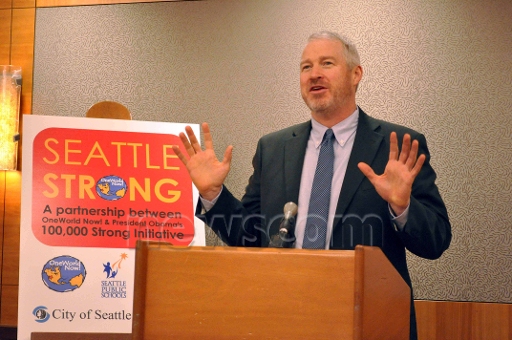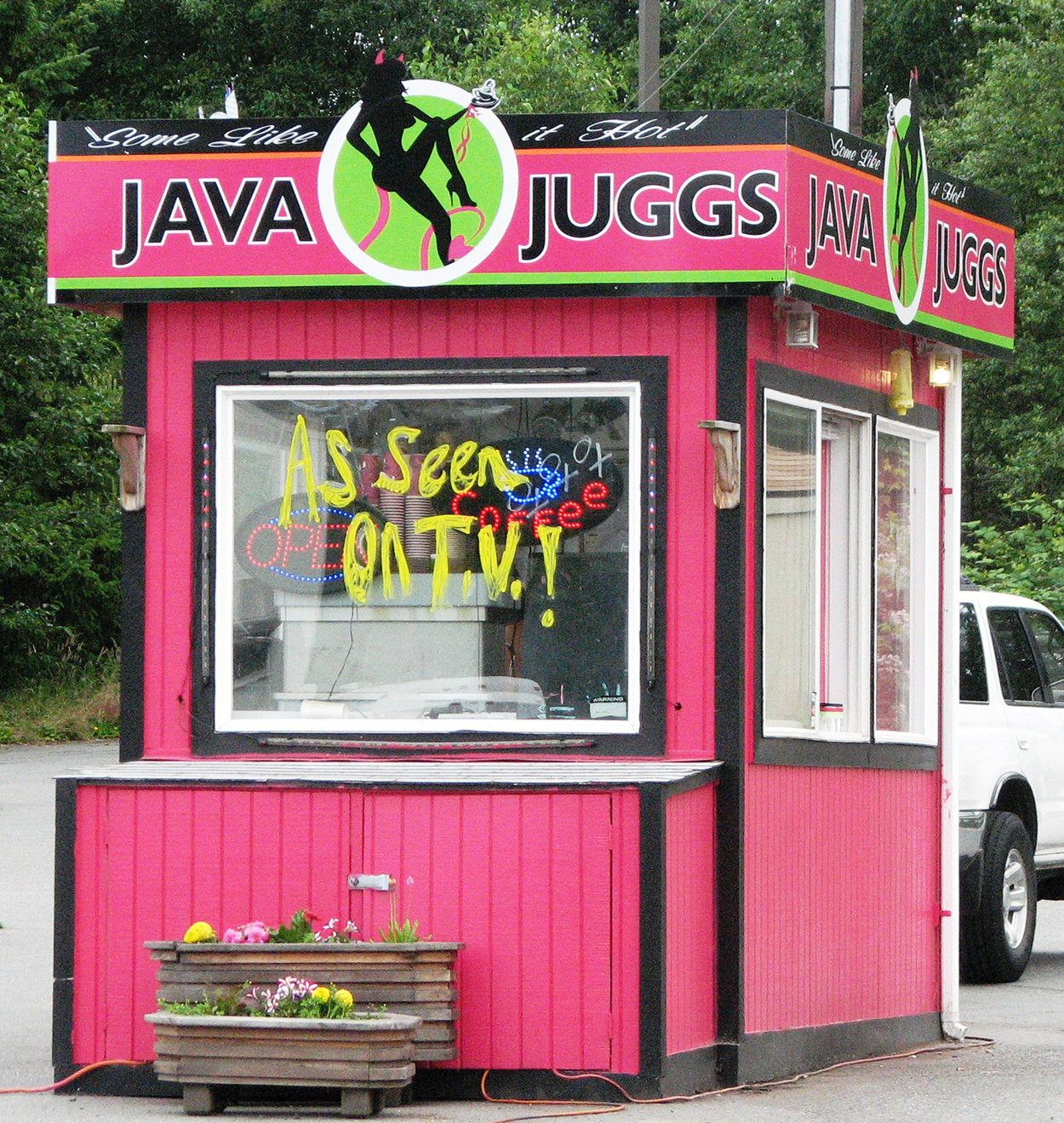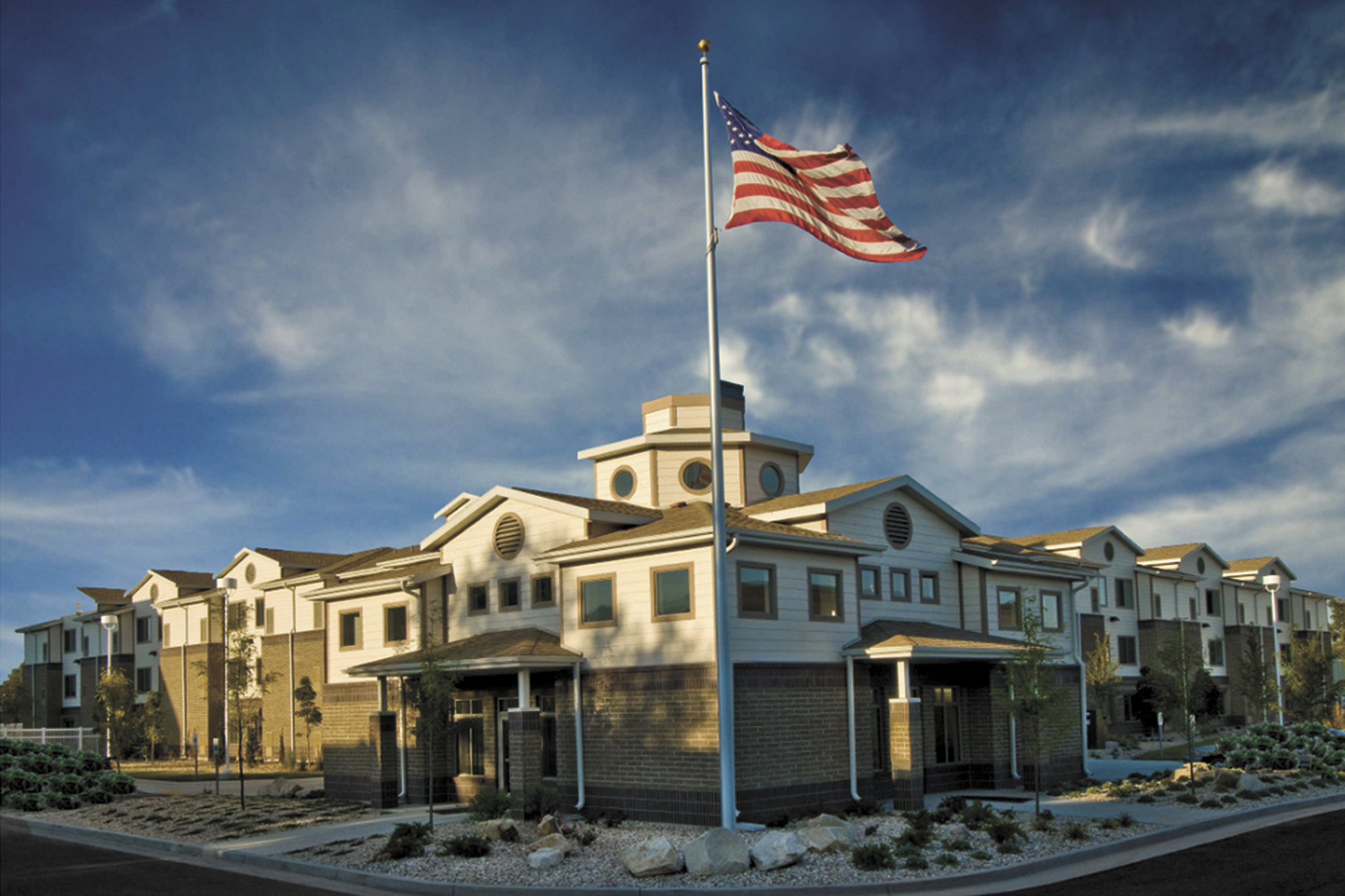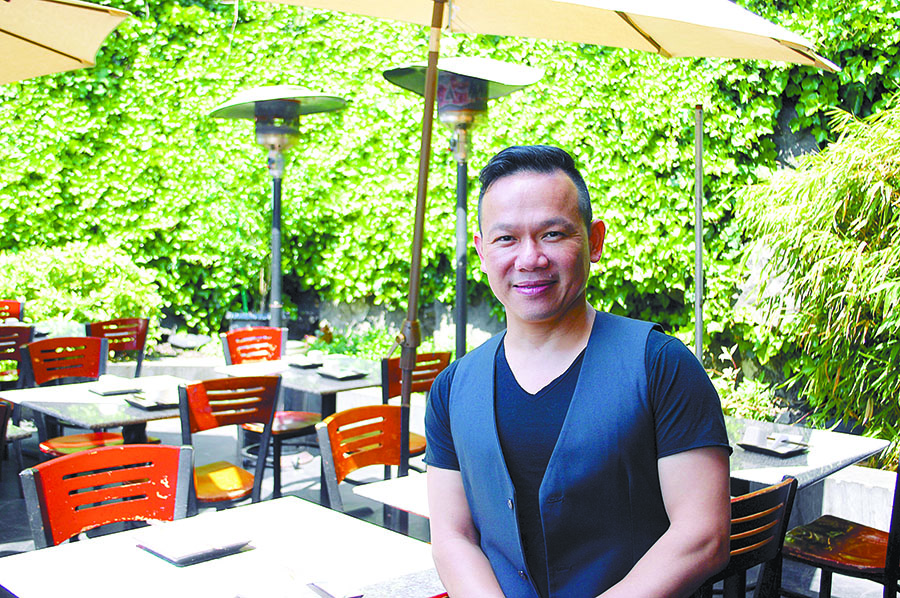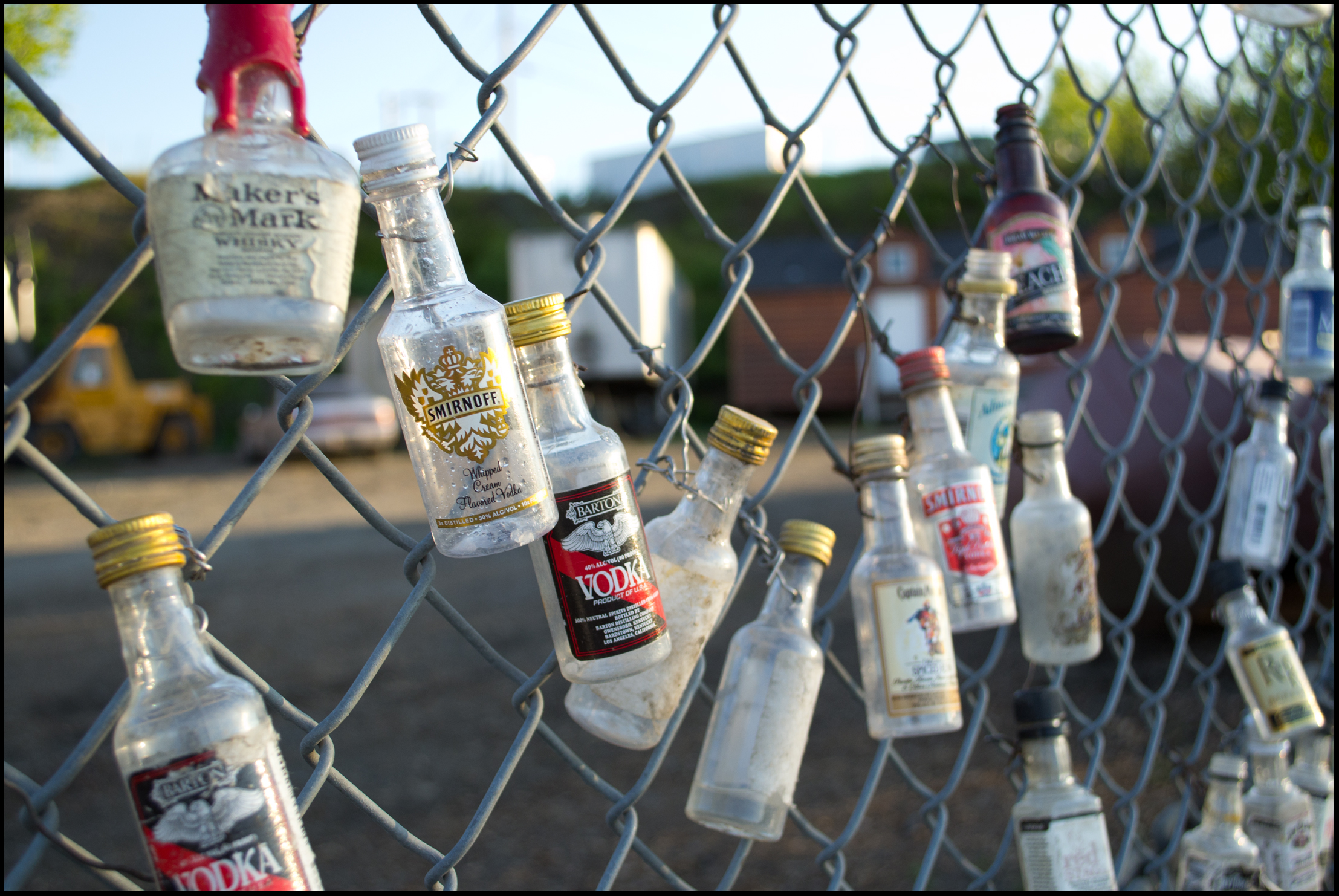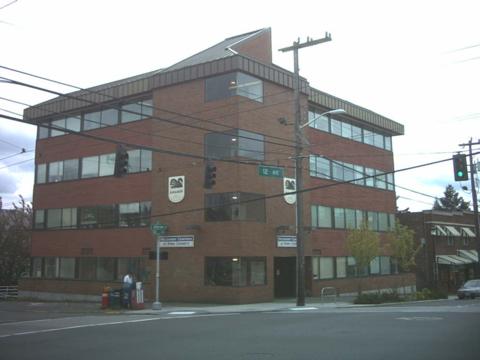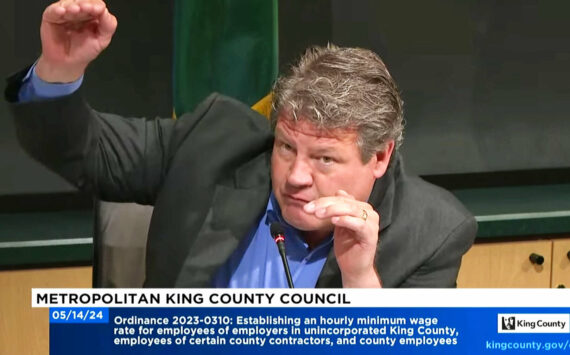Wedged between a Vietnamese hair salon and an Asian gift shop on South Jackson Street lies the nondescript campaign headquarters of one Mike McGinn. Here, behind a plain wooden desk in the back room of this $1,000-a-month rental, sits Seattle’s 53-year-old mayor. His face flushed from his bike ride from City Hall and thinned from ridding his diet of potatoes, pasta, and other white carbs, McGinn shows no signs of wear or worry on this sunswept afternoon. He thinks there’s a wind at his back—or, to use a more fitting metaphor, a light at the end of the tunnel. The city, he says, has turned a corner, and is, as he puts it, “heading in the right direction.”
That’s the message McGinn seeks to peddle in the few weeks leading to the August 6 primary: He’s made his share of mistakes and learned from them; jobs are up; crime is down; more bike paths and light rail-systems are on the way—and, oh, yes, lots more bandwidth. He’s quite big on bandwidth.
McGinn’s mantra is almost Reagan-like: It’s morning in Seattle. “Yeah, I’ve had setbacks,” he begins. “The Seattle Times hasn’t been my friend, and the tunnel hurt.” Then comes his oft-repeated riff: “But there’s no mayor’s school, you know. I’ve never run a place with 11,000 employees.”
A moment later, he concedes, “I probably should have spent more time in meeting people, going to more [public] hearings, listening more. Some things, like cutting strategic advisers, were not well-thought-out. That was a mistake.”
Mea culpas aside, the former neighborhood and Sierra Club activist has a tough row to hoe to win a second term. His approval rating, though no longer at the Nixonian depths it reached during his first two years in office, is still alarmingly low. Though his base remains largely intact—liberals, environmentalists, and naturally, the Cascade Bicycle Club—the latest poll put him at just 22 percent. More sobering for the Long Island, N.Y.–raised father of three is that nearly 30 percent of the electorate is undecided, and seldom do undecided voters break in large numbers for an incumbent. In any case, McGinn has collected his share of endorsements, mostly from environmental and labor groups, and leads the pack in campaign contributions, having raised $241,000 with $100,000 on hand as of June 30.
McGinn says he’s not surprised or upset that, smelling blood, a group of formidable rivals chose to take him on. “They all wanted it in 2009,” he says of state Sen. Ed Murray, Bruce Harrell, Peter Steinbrueck—and even Tim Burgess, who quit the race in May. “It’s no secret I kind of jumped the line.”
With a mischievous smile, he adds, “These guys are all running a very negative campaign.” It’s clear, though, that “these guys” refers specifically to Murray, for whom McGinn has no use. Murray, the mayor remembers well, seriously pondered a write-in candidacy four years ago after then–Mayor Greg Nickels was ousted in the primary. Murray’s recent comment to Seattle Weekly still sticks in McGinn’s craw: If the race boils down to him and the incumbent, as Murray predicts, it will be “the ugliest campaign Seattle has ever seen.”
On one issue in particular—Sound Transit’s sub-area equity, which requires that any money raised in one of the Sound Transit district’s five sub-areas must be spent in that sub-area—McGinn makes it clear that he thinks he’ll have the upper hand on Murray. “By opposing sub-area, that’s Murray’s way to blow up Sound Transit,” he says.
McGinn’s biggest challenge is to dislodge himself fully from the penalty box he found himself in during the first half of his term. He had crusaded against the downtown tunnel during the ’09 race before suddenly dropping his opposition a few weeks before the election—and then bashing it again as mayor, while angering politicians far and wide when he forced a public referendum on the project, which voters approved in a landslide.
There was also the widespread perception that his agenda was too narrow. Headstrong and seemingly anti-car, McGinn early on pushed for the removal of car lanes and on-street parking in favor of bus and bike lanes. At the same time, he closed a $67 million budget gap by shedding 300 city workers, reducing hours at community centers, and cutting park maintenance and library services. Later, there was his mashup with the Department of Justice for being too adversarial in settlement negotiations regarding Seattle police misconduct.
No question, McGinn inherited a woeful economy, but he made things worse by alienating the business community, the city council, and even ex-Gov. Chris Gregoire, whom he essentially called a liar regarding the tunnel. As Times columnist Danny Westneat wrote, “Bottom line: McGinn was a dead man walking, politically speaking. Or I guess dead man bicycling.”
McGinn dodges most questions about his stormy tenure. He’s got a script, a positive spin, and he’s sticking to it. “Despite the recession, we’ve expanded support for education, rebuilt the rainy-day fund, while increasing funding for essential services and transit expansion,” he says in his soothing, it’s-a-lovely-day-in-the-neighborhood tone. “We’ve invested $1.68 million to expand the Youth Violence Initiative. We’re building the seawall and we’re investing in our city, in our streets, in our infrastructure.”
The mayor, who relished the role of outsider four years ago, has become a developer’s darling. Paul Allen’s Vulcan real estate company, for one, was thrilled that a gung-ho McGinn championed high-density plans to build three 400-foot residential skyscrapers along Denny and two dozen 24-story towers along Fairview and Dexter in South Lake Union. To date, 19 individual Vulcan donors have shown their appreciation by giving McGinn $3,700 for his re-election efforts.
McGinn says South Lake Union and similar high-density endeavors are the inevitable future. “We can’t turn back the clock in Seattle,” he says. “We’re building a world-class city.”
The Bust Seattle’s Stripper King Never Felt
Stripper King Frank Colacurcio, who died three years ago last week, resides now in the great hereafter. Wherever that is, they likely do not have newspapers. Still, you could imagine applause from above when news broke about his protege Carmela Panico.
She had danced for him at Rick’s, his nudie strip club in Lake City, going on to become one of the few female entrepreneurs in the strip-and-sex business. Panico followed Frank’s model—create a small empire of joints and then battle the cops to stay alive.
With one obvious difference: Panico thought small.
Rather than dance halls, her clubs are the size of coffee shacks. In fact, they are espresso huts, six of them scattered around Snohomish County and one in Kent. The cops call them sexpresso stands.
Besides a cuppa joe, a customer can get wiggled at and flash-danced. According to police and prosecutors, some of the grinding baristas also allowed the touching of body parts, occasionally letting it all hang out the window. Sometimes, allegedly, they offered sex for money.
Frank would have slapped himself at seeing Panico’s innovation: a drive-in strip joint! It’s Dick’s the way he would have liked it.
Panico, like Frank, has been fighting with the cops for years. In 2011, according to court records, a plainclothes officer said that when he drove up to one of Panico’s huts, Java Juggs, the barista asked “Are you a naughty boy?”
He confessed he was. The barista told him to drive around to the other side of the stand where, through the window, he could watch her on the stripper pole, exposing herself. A frothy cup of coffee like that cost $20.
At those prices, the think-small strip clubs were revenue-large: In the past three years, Panico deposited more than $850,000 in cash into a BECU bank account, records show.
It was literally cool cash—but something smelled. A search warrant on file recounts that BECU employees noticed the money always seemed to have a “foul odor.” That’s because, Panico advised her employees, she kept the money “in her freezer at home with fish.”
Police spent tireless months on the case—pole dance after pole dance; oh, the humanity. Panico was subsequently charged with prostitution. She later pleaded guilty to lewd conduct and was fined $775.
Police then spent more months on the case. And then just the other day, a cop was accused of crossing the line. That happened a lot when Frank ran Seattle clubs, back in the 1950s and ’60s police-payoff days. A cop walked in and Frank had a sack lunch for him, a salad of cash. Frank could then stay open.
In this case, both Panico, 51, and longtime Snohomish County Sheriff’s Sgt. Darrell O’Neill, 58, were arrested for conspiring to promote prostitution. Everett Police claim O’Neill tipped off Panico and a manager/dancer about police investigations in return for sex with the women.
Investigators say O’Neill allegedly had sex inside the coffee stands while in uniform. There is video of him hugging and kissing the bikini baristas on duty. Police claim the coffee huts “essentially operate as drive-through strip clubs or brothels.”
The investigation continues, with officials looking into possible money-laundering and organized-crime violations.
Charges like that would also be right out of the Frank Colacurcio racketeering playbook. Which brings up one final point: Frank, as a strip-club mentor, could tell Panico about: going to jail. Seven felonies, one reversed. He was an expert. Rick Anderson
E
news@seattleweekly.com
